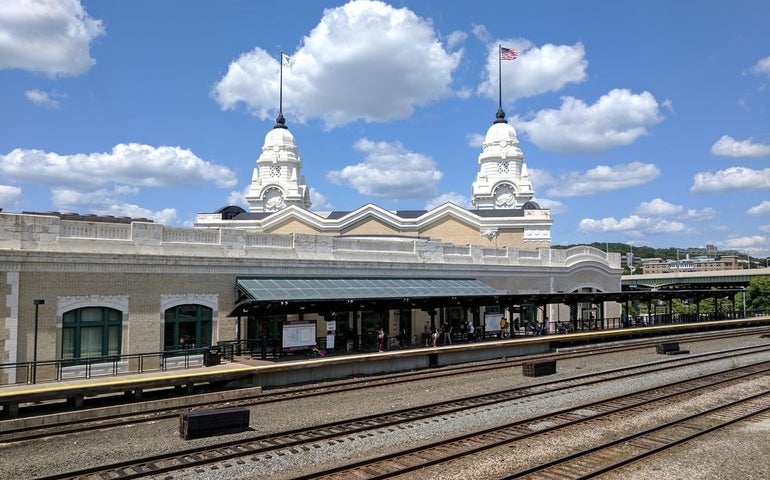Any Worcester residents commuting into Boston have two tough options: drive in or take the commuter rail.
The MBTA commuter rail may free up some time for relaxing or working on the way in and out, but the price is far out of reach for many, according to a report Thursday by MassINC, a Boston think tank that focuses much of its work on the state’s Gateway Cities, including Worcester and Fitchburg.
A monthly pass to and from Worcester’s Union Station or Fitchburg’s commuter rail station costs $4,656 a year, the highest of any end-of-line Massachusetts station in the system, according to MassINC. Even those not commuting all the way into Boston have high costs: $2,352 a year to go from Fitchburg to Waltham, and $1,668 from Worcester to Framingham.
“Most residents are unable to make this significant expenditure in a single payment — if they can afford it at all,” the report says.
Worcester and Fitchburg residents have among the highest financial burdens if they regularly take the commuter rail. Fares take up 13% of a median household income in Worcester, tying it with Lawrence for the highest of any city with a commuter rail stop, and 11% in Fitchburg, according to MassINC.
The new report shines a light on the challenge of even those living in relatively lower-cost cities farther from Boston facing high living costs, including transportation for those not relying on the commuter rail. A typical household in Worcester, for example, spends 52% if its income on just two necessities: rent and a vehicle. That trails only Lawrence among Gateway Cities, and Fitchburg sits not far behind at 47%.
Many commuters in those cities may take the commuter rail to work but also have a car, of course. For those residents, housing and transportation costs can eat up even larger shares of incomes, the report says. More than eight out of 10 residents in Fitchburg and Worcester households have a car, according to Census data.
The report comes out as infrastructure breakdowns and other causes for delay on the MBTA system have raised concerns about how the network can support Greater Boston’s growing workforce and population.
On July 1, one-way fares to $12.25 from $11.50 in Worcester, Fitchburg and other farther-out stations including North Leominster, Shirley, Ayer and North Grafton. Monthly fares for each of those stations also rose, by $25 a month, to $388.
MassINC is advocating for cheaper fares for lower-income riders and off-peak travel. It is also pushing for discounted reverse commuting tickets to help Gateway Cities attract workers from Boston or adjacent communities.
Union Station is second only to Lowell among the network’s busiest stations at the end of a commuter rail line, with nearly 1,500 commuters boarding a train in Worcester each weekday, according to an MBTA’s latest numbers in 2016.

